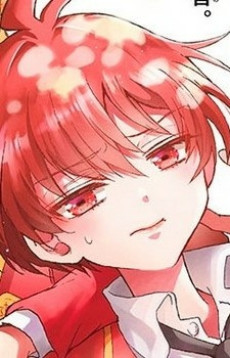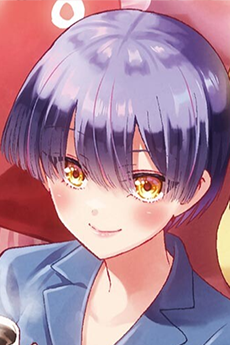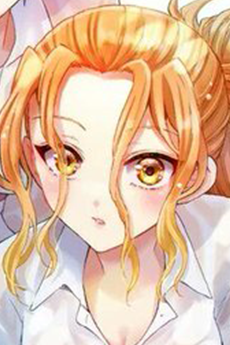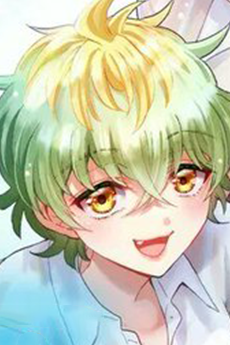
Dealing with Mikadono Sisters is Breeze! Hindi Subbed [06/12] | Mikadono Sanshimai wa Angai, Choroi. Hindi Sub!!

Mikadono Sanshimai wa Angai, Choroi.
Dealing with Mikadono Sisters Is a BreezeSynopsis
Yuu Ayase, son of a late legendary actress, is overwhelmingly mediocre. When he’s invited to stay with his mother’s friend, Yuu is shocked to find out that he’ll be living with three prodigy sisters who possess both beauty and talent…and who rule his new school as the Three Emperors. Can Yuu manage to melt the sisters’ cold hearts and fulfill his mother’s last wish for him to build a happy family? (Source: Crunchyroll)
Watch Trailer
Characters
Dealing with Mikadono Sisters Is a Breeze Season 1: A Fresh Take on the Harem Rom-Com with Heart and Humor
Dealing with Mikadono Sisters Is a Breeze (Mikadono Sanshimai wa Angai, Choroi), a 2025 anime adaptation of Aya Hirakawa’s manga, serialized in Shogakukan’s Weekly Shōnen Sunday since 2021, has emerged as a standout in the crowded Summer 2025 anime season. Directed by Tadahito Matsubayashi and animated by P.A. Works, this romantic comedy blends familiar harem tropes with a refreshing focus on familial bonds, character depth, and subtle emotional resonance. Season 1, spanning its initial episodes, delivers a compelling mix of humor, heart, and unconventional storytelling that sets it apart from its peers. This review dives deep into the series’ strengths, nuances, and areas where it could push further, offering a comprehensive analysis for anime fans seeking something both familiar and distinct.
Plot and Premise: A Tale of Family Over Romance
At its core, Dealing with Mikadono Sisters Is a Breeze follows Yuu Ayase, a self-proclaimed “mediocre” high schooler and son of the late legendary actress Subaru Ayase. Unlike his mother, who was a paragon of beauty, talent, and charisma, Yuu feels he’s inherited only her looks, lacking the skills to match her legacy. After her passing, Yuu transfers to the prestigious Saika Academy, where he’s taken in by his mother’s friend—revealed to be the father of the Mikadono sisters: Kazuki, Niko, and Miwa. These three prodigies, known as the “Three Emperors” of Saika Academy, excel in performing arts, martial arts, and shogi, respectively. However, their hyper-focus on their talents has left them emotionally distant from each other and neglectful of basic life skills, turning their mansion into a chaotic mess.
Yuu’s mission, inspired by his mother’s dying wish, is to build a “happy family” with the sisters, not necessarily to pursue romance. This premise sets the series apart from typical harem anime, where the male lead’s goal is often to win the affections of multiple love interests. Instead, Yuu’s focus on fostering sisterly bonds and creating a warm household dynamic gives the show a wholesome foundation, even as romantic undertones naturally emerge. The narrative balances lighthearted comedy with poignant moments of vulnerability, exploring themes of grief, self-worth, and the meaning of family.
Characters: A Quartet of Charm and Complexity
The heart of Dealing with Mikadono Sisters lies in its well-crafted characters, each bringing a unique flavor to the story:
- Yuu Ayase (voiced by Minami Hinata): Yuu is a refreshing protagonist for a harem anime. Far from the spineless archetypes common in the genre, he’s proactive, emotionally intelligent, and skilled at housework, earning him the fan-dubbed title of “Ultimate House Husband.” His self-awareness of his “mediocrity” is both relatable and endearing, but his knack for cooking, cleaning, and subtly influencing the sisters reveals a quiet strength. Yuu’s desire to honor his mother’s wish adds depth, making his journey feel personal rather than a mere plot device.
- Kazuki Mikadono (voiced by Yurina Amami): The eldest sister and a flamboyant performing arts prodigy, Kazuki’s larger-than-life personality masks a vulnerability stemming from her pride and fear of failure. Her comedic outbursts and dramatic flair provide some of the show’s funniest moments, while her gradual warming to Yuu hints at deeper emotional layers.
- Niko Mikadono (voiced by Aoi Koga): The middle sister and martial arts champion, Niko is a stoic tsundere with a penchant for discipline. Her tough exterior contrasts with her secret love for cute things, creating delightful “gap moe” moments. Fan-favorite scenes, like her blushing in a pink kimono, showcase her softer side, making her a standout for many viewers.
- Miwa Mikadono (voiced by Yoshino Aoyama): The youngest sister and shogi genius, Miwa is analytical and reserved but harbors a longing for the closeness she once shared with her sisters. Her subtle growth, especially in episodes where she reconnects with Kazuki and Niko, is a highlight of the season’s emotional arc.
The sisters’ distinct personalities—Kazuki’s theatrics, Niko’s intensity, and Miwa’s quiet intellect—complement each other, creating a dynamic that feels authentic rather than formulaic. Their flaws, such as their slovenly home habits and emotional distance, make them relatable, while their prodigious talents keep them aspirational. The show’s ability to balance their quirks with moments of vulnerability ensures that each sister feels like a fully realized character, not just a trope.
Themes and Emotional Depth: Beyond the Harem Cliché
While Dealing with Mikadono Sisters embraces harem rom-com staples—such as the inevitable blushing moments and comedic misunderstandings—it subverts expectations by prioritizing familial bonds over romantic conquests. Yuu’s goal isn’t to “win” a sister but to heal their fractured relationship, a mission rooted in his own unresolved grief over his distant relationship with his mother. This focus on family gives the series an emotional weight that resonates with viewers who appreciate stories about found families, akin to Fruits Basket or The Quintessential Quintuplets (though with less overt romance than the latter).
The show also explores the pressure of living up to expectations. Yuu’s struggle with his perceived mediocrity contrasts with the sisters’ burdens as prodigies, creating a thematic thread about self-worth and acceptance. Episodes like the one where Yuu helps the sisters eat together at the same table (a rare occurrence before his arrival) highlight the slow but meaningful progress toward rebuilding their bond. These moments are understated yet powerful, avoiding the melodrama that often plagues similar series.
However, the series doesn’t shy away from rom-com fun. The sisters’ growing feelings for Yuu, often sparked by his kindness or unexpected competence, lead to hilarious scenarios, like Niko and Miwa’s “derpy” reactions to Kazuki’s rare blush or Yuu’s playful teasing about carrots in Kazuki’s food. These lighthearted interactions strike a balance between cute and cheeky, ensuring the show never feels too heavy.
Animation and Sound: P.A. Works’ Polished Craftsmanship
P.A. Works delivers a visually appealing experience, with vibrant character designs by Yūsuke Inoue that echo CLAMP’s elegant style. The sisters’ distinct looks—Kazuki’s long hair, Niko’s athletic build, and Miwa’s petite frame—reflect their personalities, while Yuu’s expressive design captures his everyman charm. The animation shines in comedic sequences, with exaggerated reaction faces and fluid movements that enhance the humor. Backgrounds, particularly the cluttered Mikadono mansion, add personality to the setting, reflecting the sisters’ chaotic lives before Yuu’s arrival.
Masaru Yokoyama’s soundtrack complements the show’s tone, blending upbeat tracks for comedic moments with softer melodies for emotional scenes. The opening theme, “Kimi ni Fusawashii Kiseki” by Nichiyoubi no MAISONdes, is catchy and sets a lively mood, though some fans noted that Niko’s ending theme lacked the production polish of Kazuki’s. The voice acting is a highlight, with Minami Hinata’s earnest delivery as Yuu, Aoi Koga’s dynamic range as Niko, and Yurina Amami’s theatrical flair as Kazuki stealing the show.
Standout Episodes and Moments
As of the latest discussions (up to episode 5, aired by July 30, 2025), several moments stand out:
- Episode 1: The double-episode premiere introduces Yuu’s arrival at the Mikadono mansion and his first clashes with the sisters. His refusal to be a doormat, particularly when he pushes back against Niko’s demands to clean the dojo, establishes his backbone and sets the tone for his role as a caretaker with agency.
- Episode 3: Niko’s pink kimono scene and Miwa’s wedding dress misunderstanding amplify the rom-com charm, while Yuu’s success in getting the sisters to eat together marks a pivotal step in his mission. The sisters’ flustered reactions to Yuu’s oblivious charm are both hilarious and heartwarming.
- Episode 4: Yuu’s impression of Kazuki and the sisters’ competitive yet cooperative dynamic during a challenge showcase the show’s ability to blend humor with character growth. Fans on platforms like Reddit praised the “gap moe” of the sisters’ flustered moments.
- Episode 5: The introduction of the Mikadono sisters’ emotionally distant father adds tension, hinting at why the sisters grew apart. Yuu’s influence in encouraging them to rebel against their father’s rigid expectations deepens the narrative, though some viewers speculated about the father’s ulterior motives, adding an intriguing layer of ambiguity.
Reception and Community Buzz
The anime has garnered positive reception for its fresh take on the harem genre. On Reddit, fans have lauded Yuu’s competence and the sisters’ distinct personalities, with Niko emerging as an early favorite for her tsundere charm and martial arts prowess. MyAnimeList reviews, such as one from user Yuki_SatoVT, compare it favorably to The Quintessential Quintuplets for its focus on familial bonds and character development, calling it a “breezy, comforting watch” with emotional depth. The series’ manga, with over 1.5 million copies in circulation by June 2025, has also been praised, ranking high in awards like the 2023 Nationwide Publishers’ Recommended Comics.
However, some fans note that the romance progresses slowly, with Yuu’s focus on family over courtship leaving some craving more explicit romantic development. Others feel the series could stand out more in a packed season with heavyweights like My Dress-Up Darling and DAN DA DAN. Despite this, the consensus is that the show’s unique premise and heartfelt execution make it a gem worth watching.
Areas for Improvement
While Dealing with Mikadono Sisters excels in many areas, it’s not without flaws. The pacing can feel uneven, particularly in episodes that juggle multiple subplots (e.g., Yuu’s school life and the sisters’ individual arcs). Some viewers found the father’s introduction in episode 5 abrupt, wishing for more buildup to his role in the sisters’ estrangement. Additionally, the romantic elements, while charming, sometimes take a backseat to the familial focus, which may disappoint fans expecting a more traditional harem payoff. The animation, while solid, occasionally leans on static shots during dialogue-heavy scenes, which could be elevated with more dynamic visuals.
Why It Stands Out
What makes Dealing with Mikadono Sisters Is a Breeze unique is its rejection of the “wish-fulfillment loser” trope. Yuu’s competence as a homemaker and his genuine desire to help the sisters reconnect elevate him above the typical harem protagonist. The sisters, too, are more than archetypes; their prodigious talents are balanced by relatable flaws, making their growth feel earned. The show’s blend of humor, heart, and subtle commentary on talent and self-worth sets it apart from the “harem slop” some fans feared it might be. Its comparison to Fruits Basket for its found-family theme and The Quintessential Quintuplets for its sisterly dynamics underscores its ability to carve a niche in a crowded genre.
Final Thoughts
Dealing with Mikadono Sisters Is a Breeze Season 1 is a delightful surprise, offering a fresh spin on the harem rom-com with its emphasis on family, character-driven humor, and emotional depth. While it doesn’t reinvent the genre, it refines it, delivering a story that’s both breezy and meaningful. Yuu and the Mikadono sisters are a quartet you’ll root for, laugh with, and maybe even tear up over. For fans of heartfelt comedies with a touch of romance, this anime is a must-watch, proving that sometimes, the simplest acts—like cooking a meal or sharing a laugh—can mend broken bonds and create something truly special.
Rating: 8.5/10
Recommendation: Perfect for fans of The Quintessential Quintuplets, Fruits Basket, or anyone seeking a rom-com with more heart than harem clichés.
Sources: Information compiled from MyAnimeList, Reddit discussions, Anime News Network, and Crunchyroll’s streaming details.
Support Our Anime Community!
Love watching the latest anime? Help us keep uploading new episodes by join telegram channel ❤️
Join Now!








